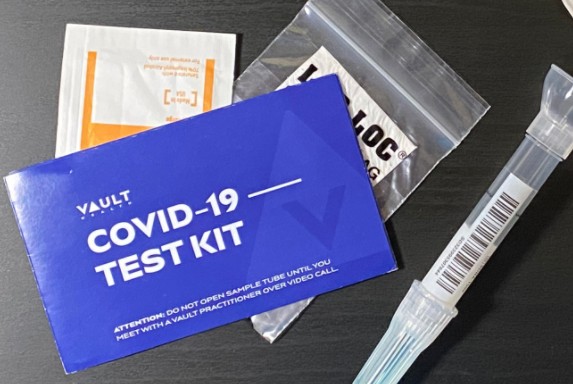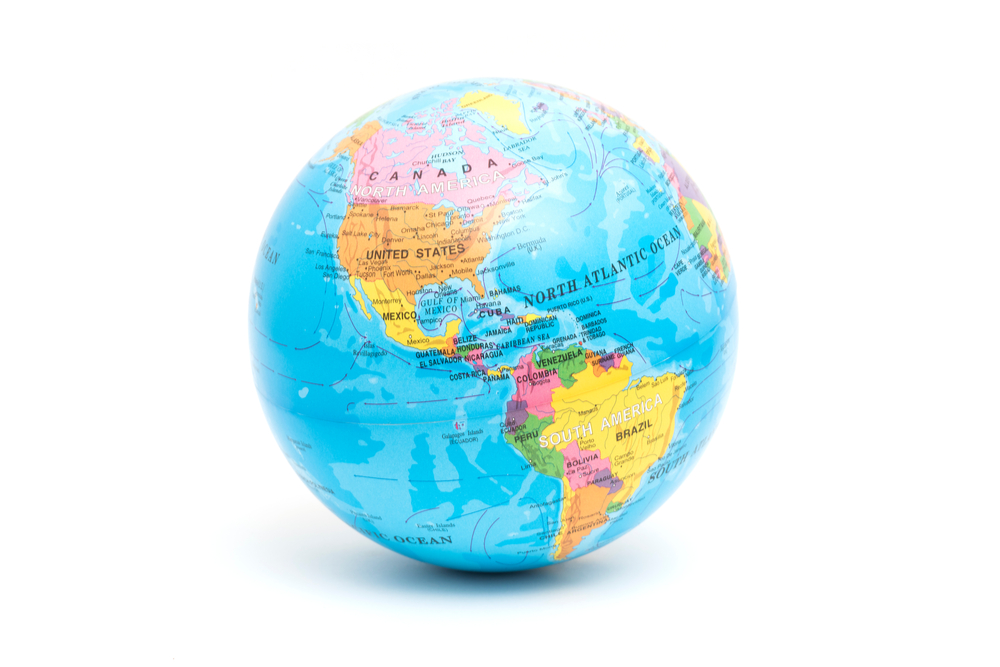What Vaccinated Travelers Do and Do Not Need to Worry About
If you’re vaccinated, what do and don’t you need to worry about when traveling internationally during Covid? We interviewed Dr. Timothy Triche on this topic on May 4, 2021, during WOW Week, our series of virtual get-togethers addressing today’s most pressing travel questions. Unlike some of the talking heads we see in the media, Dr. Triche is an experienced world traveler who is able to assess and explain Covid risk in the context of the type of international travel that our sophisticated readers do. Fast forward the video to 6:45 if you’d like to skip the intros and get straight to the meat and potatoes of our interview.
Dr. Triche is a Professor of Pathology at the University of Southern California’s Keck School of Medicine. He is the Co-Director for the Children’s Hospital Los Angeles Center for Personalized Medicine and, before that, headed its Department of Pathology and Laboratory Medicine for 20 years. He has been working on coronavirus solutions since the start of the pandemic. He was responsible for developing the DNA-sequencing-based Covid-testing program at Children’s Hospital/USC Keck School of Medicine, and he is actively engaged in vaccine development efforts designed for use in places like Africa that lack ready access to health care.
In our conversation, Dr. Triche explained—in clear and understandable language—many topics of concern to travelers, including:
•What variants are, how they spread
•How vaccines offer protection and to what degree
•How to gauge risk in various locations around the world
•Interpreting CDC and State Department warnings
•Air travel risk, including long-haul vs. short flights and airports
•Traveling with unvaccinated children
•Traveling between the first and second dose of vaccine
•The risk factor of cruises
Dr. Triche answered many additional questions, and shared his own travel plans, so be sure to watch the video.
Updates emailed to us by Dr. Triche since his talk:
- July 28: This study helps explain why the Delta variant has become so prevalent: Infected individuals produce far more virus than they would when infected with the original version, making it more transmissible. Dr. Triche points out that “99% of the cases are occurring in unvaccinated persons,” and advises that “the prudent traveler will check before departure and look for adverse trends like rapidly increasing case numbers.”
- May 26: This study found that people who have been infected with Covid possess long-term immunity that lasts many years. “If we are lucky, vaccinated individuals will show the same pattern,” says Dr. Triche. He points out that people who contracted the original SARS virus—the coronavirus identified in 2003—remain immune to it today. “I’m getting optimistic that this may be like the original SARS story, where people remain immune 18 years later,” says Dr. Triche.
- May 21: People in Los Angeles County who have been fully vaccinated have only a 0.03% chance of getting coronavirus. Of those who become infected after vaccination, the vast majority have no symptoms. “This is by no means unique to L.A.,” writes Dr. Triche. “This is what happens in any country with widespread vaccinations.” A vaccinated traveler’s chance of dying from Covid is about one chance in a million, he adds.
- May 14: People in Illinois who have been fully vaccinated have a 0.06% chance of contracting the virus.
- May 6: These numbers show that mRNA vaccines (Pfizer and Moderna) are highly effective against the most worrisome coronavirus variants.
- May 5: These data about long-term immunity help answer the question: How long will I be protected after vaccination? No one knows yet, says Dr. Triche, but likely at least the better part of a year or more. These findings show that even if your antibody levels fall, you are still protected.
Excerpts from the video, edited for clarity and length:
Variants
Q: A lot of people are worried about traveling to a place where there is a variant. They think, oh my gosh, there’s a new variant in that city—I’d better avoid that entire continent. Which variants do we need to worry about?
DR. TRICHE: People keep talking about variants. But they’re confusing two things. There’s lineage—in other words, something that spreads from Person A to Person B—and lineage is also often called a variant. That doesn’t mean nearly as much as the particular constellation of mutations in that lineage or variant. And unfortunately, the variants pick up new mutations over time, and they still call it the same variant. What matters most is the group of mutations in any variant.
The reason this happens is that mutations are like roulette. It’s like going to Las Vegas: Every time that virus makes a copy of itself, there’s a chance it will pick up one of these mutations. If [the mutation] makes it work better from the virus’s viewpoint, it’s going to become common in that population. And so, unfortunately, these mutations are going to happen around the world, over and over, as long as this pandemic goes on. All that really matters is: Does it make a difference for your immunity? And the answer is: Some mutations diminish your immunity, but they don’t make you non-immune.… Let’s just pretend that it takes 10 million viruses to infect you, even if you were not immune, with a normal strain.… With a bad mutant strain, it might take less than that. Even so, if you’re vaccinated, the chance you would encounter enough viral particles to overcome your immunity is very low, probably less than one chance in 10,000. So, unless you’re in extraordinary circumstances, you’re going to be immune to all the variants in the world right now.
Vaccines, India, Brazil, and South Africa
Q: Are there countries that we should avoid because of a variant? How comfortable can we be that current vaccines are going to protect us against the variants out there?
DR. TRICHE: I wouldn’t worry so much about the variants. Remember, you’re likely immune against all the current variants if you’ve been vaccinated. It’s just the level of your immunity: Let’s say that your immunity could be measured as five-plus, four-plus, three-plus, two-plus, one-plus. Your immunity for the original variant that the vaccine was made against is five-plus; your immunity for the nastiest variants might be three-plus. However, in this scheme, it takes one-plus to be immune. So you’re covered—it’s just that the coverage is less assured, less guaranteed for some of the nasty variants, depending on your immune system and the magnitude of your exposure. What worries me most is going into an area with a high prevalence of the nasty variants of the virus. Remember, I said earlier, there’s no such thing as an absolute guarantee of immunity for anybody at any time, because it is possible to overwhelm your immune system. I mean, if you drink a quart of viral isolates, you’re probably going to get the disease, regardless of how immune you are, because you’re going to overwhelm your immune system. What worries me is going into an area where the virus is endemic, everywhere you turn, and you’re getting exposed to it over and over again. I fear that there’s a chance that you’re simply going to overwhelm your immunity. And so I worry less about variants than I do about the local prevalence of the disease. So, back to your first question: Personally, I would not be traveling to Brazil or to India right now. In contrast, South Africa has improved dramatically.
Q: Have they almost reached herd immunity now in South Africa?
DR. TRICHE: That’s what it looks like, yeah, because the rate of decline in South Africa now is extraordinary and unprecedented. I would never have dreamed this would happen. And there’s really only one explanation. It’s not that suddenly everybody got vaccinated. It’s because they got vaccinated and also so many people got the virus and they are testing and social distancing. I mean, it was rampant, as you know, out in the Cape Town area, and then eventually, throughout South Africa—it just tore through the population. And now it’s in a precipitous decline, which is what you see when you reach herd immunity. So it sure looks like they are, yes.
Q: As for India, you say that the problem in India was really caused not by the viral strains or mutations, but by human behavior. I mean, isn’t the spread of this virus really, in the end, all about human behavior?
DR. TRICHE: Absolutely. To be fair, I would say it’s like 95% human behavior and 5% strain. The reason the strain is relevant is because if one version of the virus is more transmissible than the other, that would mean nothing until you pack them into some sort of religious festival with 100,000 people standing next to one another. Guess what happens with the more transmissible variant? More people will get sick, and it’ll spread through the population more successfully and efficiently. But if the crowd never occurred in the first place, the virus has no place to go. So the combination of a more transmissible virus and a lot of people hanging around together is a real bad combination. And that’s what happened in India: They had a bunch of religious festivals and political gatherings. And, of course, then it went absolutely exponential.
Air travel
Q: So you want to avoid masses of people. Do you consider airports to be masses of people?
DR. TRICHE: Not like what we saw in India or Brazil or South Africa. In an airport, presumably, there are so many safeguards. One of the reasons I think things are going so well in South Africa now is that now they have many, many safeguards in place: You get tested at the airport for positivity, you get tested for symptoms. Everybody arriving gets tested, everybody leaving gets tested. When you put those types of measures in place, you limit the possibility of spread. And, let’s be honest, most of the pandemic has been driven by so called “super-spreader events.” So what you don’t want is the so-called Typhoid Mary—the person who doesn’t know that they are about to come down with it, and they go have dinner with 100,000 people. Guess what happens? 100,000 people now get the virus.… An airport’s not like that. It is transient exposure, and many people have been cleared. So the probability of there being a problem in a place like an airport is minuscule, compared to a religious festival or political rally.
Q: When people worry about the airplane flight, a big factor they consider is the length of the flight. Are they right? What are the most important things to consider about an airplane flight to minimize your risk?
DR. TRICHE: [Worrying about the length of the flight] is like saying, The longer I live on this planet, the greater my probability of getting hit by an asteroid. We don’t spend a lot of time worried about getting hit by an asteroid, do we? So yes, a longer airplane flight is, by definition, statistically speaking, greater risk, but if the risk is so minuscule — I mean, think about everything you do in life: If you get in your car and you pull out of the driveway, you are taking a defined risk. If you pull out of your driveway twice, you’re doubling your risk. Do you not drive because of that? No, you drive despite it, right? Because your perception of risk for driving your car is very low, but, statistically speaking, it’s probably worse than getting on an airplane and taking a four-hour or an eight-hour or ten-hour flight. I mean, people get killed in cars every day, but not that many people have developed COVID from air travel. Relatively speaking, it’s relatively safe.
There have been some exceptions—and that’s what worries everybody—but the exceptions are not the rule. Personally, what I worry about much more is the off-chance that the guy sitting next to me in the middle seat is a Covid carrier, doesn’t know it, and is breathing all over me for the entire flight. In that case, the fact that I’m wearing my mask, except when I’m eating or drinking, ought to provide adequate protection. The difference between a four-hour flight and a ten-hour flight is probably minuscule, as opposed to not wearing your face mask…. But again, I emphasize, the odds are very, very low. Because the airlines have obviously gone to extraordinary lengths to clean up the air in the airplanes. It’s far cleaner now than it was pre-COVID, by the way.
Dr. Triche’s own travel plans
Q: A viewer wants to know when and where is your next international trip?
DR. TRICHE: My problem right now is our planned trip included a young grandchild who’s not vaccinated. So we are in a bit of a bind right now, because I really don’t want to take her on an international trip until she gets vaccinated. It looks like that’s going to happen anytime now, so that makes me feel a lot better. For myself, personally, I would not be averse to traveling anytime soon. Again, with all the caveats we said earlier. I’m not going to India or Brazil. And until I know a little bit more about the on-the-ground situation in South Africa—I mean, the numbers are falling precipitously, but I would certainly not want to accidentally land in a hotspot that I didn’t know about. But, you know, from what I’m hearing and reading, even that’s fair game. And certainly once you get out of the cities—and this would be true of most of Africa—you’re in a situation where, particularly in the lodges (where, from what I understand, all the staff is being tested), that’s an extremely safe environment. So, in situations where you know your destination is being tested, and people are unlikely to be spewing virus all over your dinner plate, I would feel very comfortable. The airplane travel is, I think, far less risky than being exposed to that little minibus ride from the airport with a whole bunch of people in it and you’re wondering if everybody in this bus has been vaccinated and if anybody is a carrier. Those are the scenarios that I would worry more about. I don’t want to be in an enclosed environment that’s not controlled—as opposed to an airplane, for example—for prolonged periods of time, when I don’t know the status of the other people in the vehicle with me. Same reason we’re not eating inside in restaurants right now. Because this virus is spread from person to person. And the only efficient mode of transmission is in a closed environment. If you’re outside, it’s not going to happen. Surface contamination is extraordinarily unlikely. Stay inside in a room with a few people, one of whom is exhaling the virus, and you’ve got a potential problem.
We’re Here to Help
Right now is a remarkable opportunity for global travelers who are vaccinated. When your friends say that travel is problematic as a result of the pandemic—rental cars aren’t available, service even at 5-star hotels is shoddy—the problem is they’re not planning their trips right! Travel can be spectacular now if you choose the right destination, know the savviest local fixers, and approach them the optimal way. Check out these recent trip reviews to see the difference that Wendy’s WOW approach to trip planning makes. And if you’re looking for a similarly carefree travel experience, contact us at Ask Wendy.
Be a safer, smarter traveler: Sign up for Wendy’s weekly newsletter to stay in the know. And read real travelers’ reviews of Wendy’s WOW List and use it to plan your next trip.








